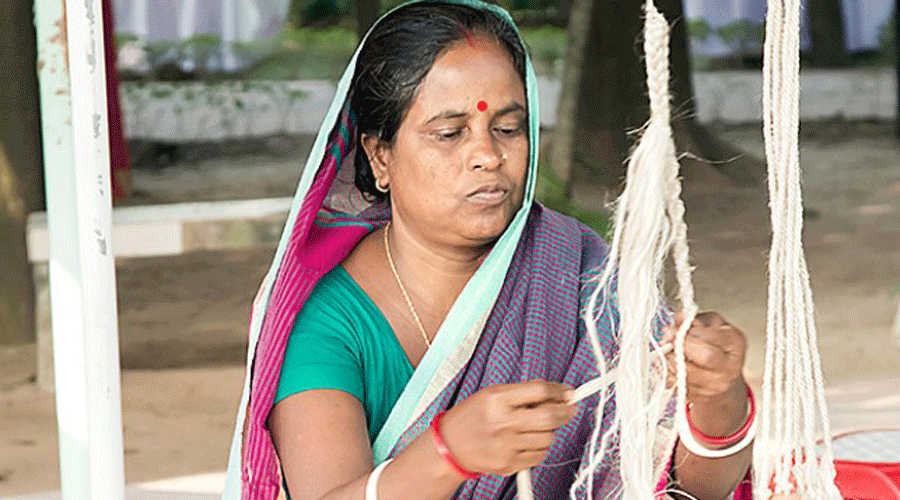The Union finance ministry has extended the anti-dumping duty on various jute products from Bangladesh and Nepal through a notification issued on Friday. The duty applicable is in the range of $6.3 to $351.72 per mt.
“The anti-dumping duty imposed under this notification shall be levied for a period of five years (unless revoked, superseded or amended earlier) from the date of publication of this notification in the Official Gazette and shall be payable in Indian currency,” the notification from the finance ministry dated December 30 said.
While Indian jute mills have been lobbying with the government to protect the domestic sector from cheaper imports from the neighbouring countries, the latter have highlighted the negative impact of such duty on their domestic industry and bilateral export with the Union commerce ministry.
At present, a joint feasibility study on a Comprehensive Economic Partnership Agreement (CEPA) between India and Bangladesh is being carried out and following a meeting of the Union commerce ministers of both countries last week, a commerce ministry note said that both sides have agreed to start CEPA discussions at an early date.
Removal of non-tariff barriers and port restrictions, re-opening of border haats, harmonisation and mutual recognition of standards and procedures, settlement of trade in rupees, strengthening connectivity and trade infrastructure were among some of the issues that could help further strengthen the economic ties between the two countries.
Production and export
Raw jute and mesta production is estimated to touch 90 lakh bales in 2022-23, up from 90 lakh bales in 2021-22 and 60 lakh bales in 2020-21 according to disclosure made by the textile ministry in Parliament. Production in 2020-21, however, was impacted due to Amphan.
Bengal holds the majority share of raw jute production in the country.










